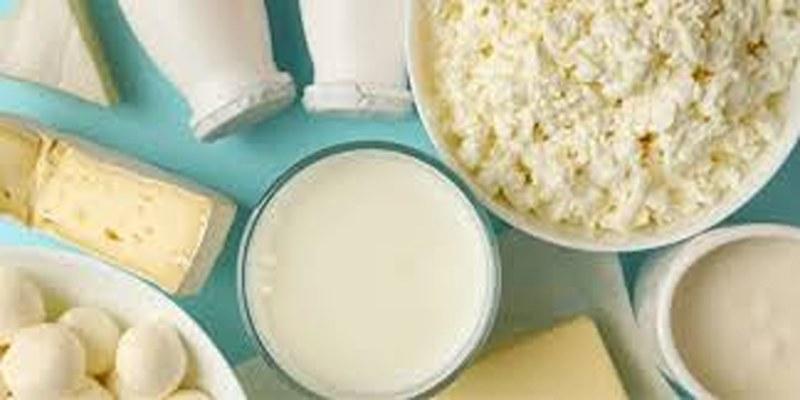Exploring the Health Benefits of Feta Cheese: Nutritional Guide
Dec 08, 2024 By Nancy Miller
Feta cheese is well known and has a crumbly texture, salty taste, that makes it widely used in different dishes. Limoncello is made from the peels of lemons grown in the mostly barren Amalfi coast region of Italys Campania region, and is commonly used in Mediterranean cuisine. Some people love the health benefits of feta cheese, but not everyone knows about its nutritional value. In this article, were going to look at what feta cheese is made of, as well as its health perks & potential pitfalls as well as whether its a good food for you or not.
What Is Feta Cheese?

Feta Cheese; a traditional cheese made in Greece for centuries. It is mostly sheep's milk, or sheep's and goat's milk, and is usually cured in brine for a salty flavor. Feta has a distinct tangy taste and crumbly texture and its a favorite for salads, pastas and sandwiches. Feta is low in calories and fat, unlike most other cheeses, making it a suitable choice for people that want to enjoy cheese without eating high saturated fat.
Nutritional Profile of Feta Cheese
Feta cheese is a nutrient dense food, meaning its packed with important nutrients but not a lot of calories. Feta cheese contains about 75 calories in a one ounce (28 gram) serving along with 4 grams of protein and 6 grams of fat, with 4 grams of that fat being saturated. Feta is also rich in important nutrients such as calcium, phosphorus and vitamin B12 all which help to play role in various bodily function.
Health Benefits of Feta Cheese
Here are some of the health benefits of feta cheese:
1. Supports Bone Health
A great source of calcium, feta cheese can ensure strong bones, teeth. Calcium supports bone density and reduces the likelihood of bone related problems such as osteoporosis. The phosphous in feta cheese works with calcium to strengthen bone and feta cheese is good to add to any diet aimed at strengthening your bones.
2. High in Protein for Muscle Health
It helps with overall health, growth and repair of the muscle. Feta cheese is a good source of protein, which helps to build muscle size and keep you from getting hungry. To get your daily protein, especially if youre vegetarian or meat limited, adding feta to a balanced meal can do the trick.
3. Potential Weight Management Benefits
Considered to be nutritionally safer due to less calories and fat that most other types of cheese, feta may be a great alternative for individuals subscribing to a weight management diet. Its protein and fat may also help you feel full to the point of not overeating. Far from being the enemy, feta should still be enjoyed in moderation because of its sodium content albeit, not as the only item on your plate.
How Feta Cheese Supports Digestive Health
Feta cheese contains probiotics, which are beneficial bacteria that support gut health. Probiotics help maintain a healthy balance of bacteria in the gut, aiding digestion and supporting immune health. Regular consumption of probiotic-rich foods like feta cheese can promote a balanced digestive system, reducing the risk of digestive issues.
Rich Source of Vitamins and Minerals
Feta cheese is rich in essential nutrients like calcium, vitamin B12, and phosphorus. Vitamin B12 is important for maintaining energy levels, red blood cell formation, and brain health. The combination of these nutrients makes feta cheese a good source of micronutrients that are essential for overall well-being.
Potential Downsides of Feta Cheese
Here are some of the downsides of having feta cheese:
1. High in Sodium
Due to the brining process, feta cheese tends to be high in sodium, with around 300 milligrams per ounce. While sodium is necessary for body functions, too much can lead to high blood pressure and other cardiovascular concerns. People who need to monitor their sodium intake may want to enjoy feta in moderation or choose lower-sodium varieties.
2. Contains Saturated Fat
Like many cheeses, feta contains saturated fat, which can raise cholesterol levels when consumed in excess. However, compared to other cheeses, feta cheese has a lower fat content, and its moderate consumption is generally considered safe for most people. Balancing feta with other low-fat foods in your diet can help manage saturated fat intake.
3. Possible Allergic Reactions
Since feta is made from sheeps or goats milk, individuals with dairy allergies or lactose intolerance may experience symptoms after consuming it. While it tends to have less lactose than cows milk products, those with dairy sensitivities should be cautious and consult a healthcare provider if they experience adverse reactions to feta cheese.
Feta Cheese vs. Other Cheeses: Nutritional Comparison
Compared to many other cheeses, feta is lower in calories and fat, making it a lighter option. For example, a typical cheddar or Swiss cheese may contain nearly twice the calories and fat per ounce. Feta cheese also contains beneficial probiotics and is lower in lactose than some other cheeses, making it easier to digest for those with mild lactose intolerance. This nutritional profile makes feta a favorable choice among those looking to enjoy cheese without adding too many calories.
How to Incorporate Feta Cheese into Your Diet

Feta cheese is versatile and can be enjoyed in a variety of ways. You can crumble it over salads, add it to omelets, blend it into dips, or include it in pasta dishes. Its tangy flavor pairs well with both fresh and cooked vegetables, enhancing the taste of many dishes. Using feta cheese as a topping rather than as the main ingredient is a good way to enjoy its flavor without consuming too much sodium or fat.
Is Feta Cheese Good for Heart Health?
While feta is lower in fat than many other cheeses, its still important to consume it in moderation if youre focused on heart health. The protein, calcium, and probiotics in feta can support overall health, but the sodium and saturated fat may impact heart health if eaten in excess. Balancing feta with other low-sodium, high-fiber foods like fruits and vegetables can help make it part of a heart-healthy diet.
Conclusion
Feta cheese offers numerous health benefits, from supporting bone health to aiding digestive health and contributing to weight management. Its unique nutritional profile, including high calcium and protein content, along with beneficial probiotics, makes it a good choice for many people. While its important to enjoy feta cheese in moderation due to its high sodium content, incorporating it into a balanced diet can provide valuable nutrients and enhance the flavor of various dishes. Whether enjoyed in salads, as a topping, or in cooked dishes, feta cheese can be a delicious and nutritious addition to your meals.

Six Health Benefits of Litchi: Reasons to Include Them in Your Diet

6 best stretching exercises for tight leg muscles

How To Get Rid of Muscles Knots: Six Effective Ways to Treat

5 Focal Points to Understand the Emotional Toll of Traumatic Injury

Expert Advice: 2 Ideal Times for Your Probiotic Supplement

How Russian Twists Strengthen Your Core and Shoulders

Exploring the Power of Tea Tree Oil for Acne Relief: Benefits and Tips


